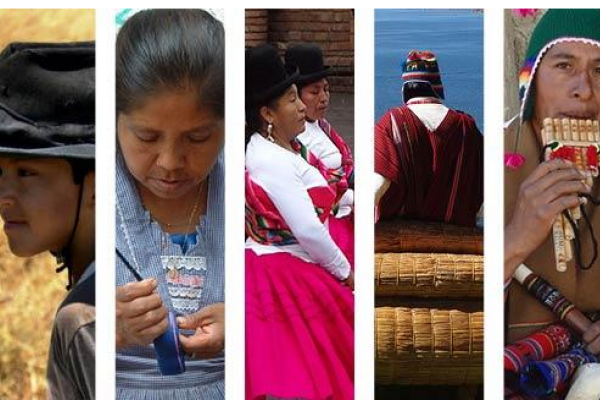
Coordinated by the Center for Latin American Studies and co-sponsored by the Center for Folklore Studies
The Symposium will open with a reception for all participants the evening of Thursday, October 13, and meet for two days (Friday, October 14, and Saturday, October 15, 2016) at the Thompson Library. We expect the participation of approximately 100 panelists and speakers from all over the country and Latin America, who will pay a registration fee of $100. The event will be open to the public and we anticipate the symposium will draw an audience of an additional 100 non-‐panelists from OSU (students and faculty from various departments). The Symposium will offer a dynamic, multi-‐format event that will include two keynote presentations and a keynote panel, panels, round tables, interactive workshops, demonstration classes, poster sessions, cultural/musical performances, indigenous film sessions and technological tool showcases. The symposium will involve faculty and graduate students from many different departments, including, but not limited to, SPPO, Linguistics, History, Musicology, Anthropology, Geography, and Folklore Studies.
Thematic tracks
- Ethnography of indigenous languages and cultures (Intellectual, cultural, and political role of indigenous communities in Latin America; Sociocultural practices and knowledge)
- Performance and representation of indigenous languages, cultures and identities, including film
- Indigenous social movements and political mobilization for democracy, human rights, and alternative epistemologies (e.g. sumak kawsay)
- Language Pedagogy (Pragmatics in pedagogy; New media and technology; Distance learning / online courses; Best practices, methodologies, and strategies; Assessment and evaluation)
- Linguistics and Socio-‐linguistics (Language attitudes and ideologies; Language contact and hybridity; Dialectology and standardization; Ideologies of monolingualism, bilingualism, and multilingualism)
- Indigenous Languages Revitalization and Documentation (Indigenous languages as first, second, third, foreign, heritage, and global languages; Indigenous languages as Less Commonly Taught Languages (LCTLs); Language policy and planning; Indigenous languages databases and digital archives)
Additional Formats
- Musical/Dance Performances: We plan to have musical/dance performances in the evening of Friday and Saturday activities, including a presentation by OSU’s Andean Music Ensemble and a major evening performance open to the general public by Boston-‐based Andean music group Yarina and Los Nin Katary. Members of these performance groups can also make important contributions as participants in panel discussions.
- Film screening: We plan to offer a premiere screening of Transnational Fiesta: 20 Years Later.
- Outcomes Session: We plan to close the Symposium with an outcomes session in the form of a round table discussion aimed at harvesting the work presented at the conference and channeling it into ongoing projects and collaborations
- Simultaneous Sessions: The Humanities Institute and CLAS-‐sponsored Working Group “Continuity and Change in the Andes and Amazonia” will host a simultaneous session in coordination with ILCLA. This will help to pay for and bring one additional outside speaker.
Invited speakers
Four speakers of international reputation will be invited (2 keynote presentations and a keynote panel). The Symposium will cover all the travel and lodging expenses and a small honorarium will be offered. Confirmed keynote speakers include
Luis E. Cárcamo-Huechante, The University of Texas at Austin
Rodolfo Cerrón-Palomino, Pontificia Universidad Católica del Perú
